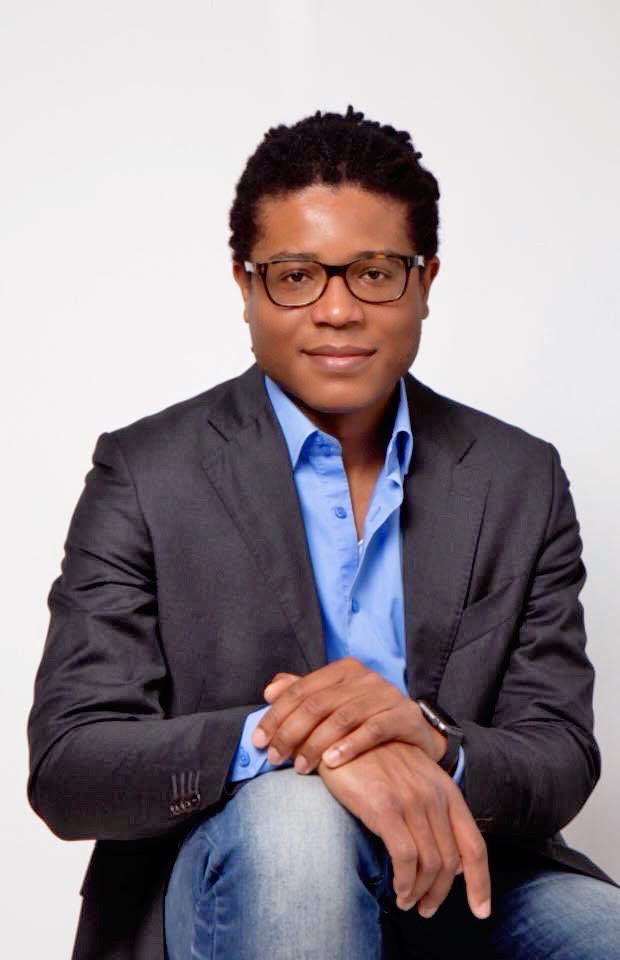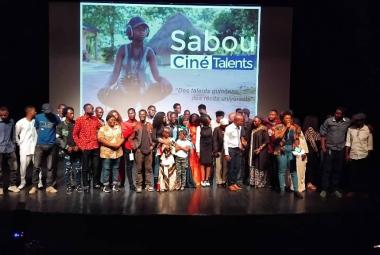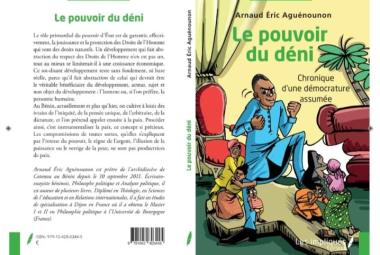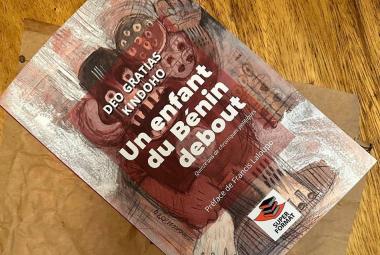Black African Literary Grand Prix with, in particular, Les seins de l’amante (The breasts of the lover ) in 2018, Timba Bema is a poet who sings all the time. From his host country, Switzerland, with which his relationship is based on the symbolism of the mountain, his native Cameroon is never far away. Afrique Destinations interviewed the writer and poet who is also the author of Sauver la ville (Save the city). Read instead.
Afrique Destinations: Mr. Timba Bema, you are the author of several books, Grand Prix littéraire d’Afrique Noire (Literary Grand Prix of Black Africa) with in particular Les seins de l'amante in 2018. If we asked you to introduce yourself to our readers, what would you say ?
Timba Bema : I think I'll start by singing. After all, singing is also a way of presenting yourself. I will sing a Baka ritornello for example. Otherwise an Ouldeme lullaby or an Esewe to express a certain joy of living, despite the daily difficulties. I could even also attack a song to think Gbaya. For that matter. I really like this musical genre because it contradicts the idea (false by the way) that music in Africa is only made for dancing. In fact, I sing more than I write. I sing all the time. To brighten up my days or just make them sweeter. Music has this power to drive away sadness, to soothe the mind, to take it elsewhere or simply plunge it into its own abyss. Because it is true that introspection is also a journey.
Then, I believe I will tell you a dream. It is a fabulous thing to tell your dreams. The unconscious is as important as the conscious to reveal a being. On this point, I always admire people who tell each other their dreams when they wake up. Like a kind of immutable ritual. I often note mine in notebooks that I call Carnet de rêves (Notebook of Dreams). Here you are. Here is a dream I had recently. In a sunny meadow white butterflies fly. Suddenly the sun sinks below the horizon. It is dusk. Butterflies turn red. Then they turn into spotted sheep that move around, as if sensing imminent danger. As I approach them, I notice that they come to life in place. Why don't they flee? I'm wondering. I try to catch one. As soon as I touch it all the sheep turn into orchids. When I brush against a petal, the flowers immediately change into balls of blinding light floating at my eye level. By approaching the hand of one of these balls, they explode silently and their shards evaporate. It's day again. The meadow is now dry, arid. A pelican looks at me, I look at it...
So ! I hope that these elements have allowed you to glimpse some aspects of my personality.
You have lived in Switzerland for a number of years. What place does Calvin's country hold in your creativity?
Switzerland is, as you probably know, a country of lakes and mountains. Volcanic activity has shaped the landscapes which in turn have shaped men, hardened their features and inspired their discreet and distant character, not to say suspicious at first sight. The Swiss were forged in opposition to the powers around them, be it the Habsburgs, France or Prussia. It is undoubtedly for this reason that on January 27, 1912 the French writer André Gide wrote in his diary: " Here I am again in this country that God made to be horrible ". In the eyes of Gide, the Swiss mountains crush man with all their weight like the Calvinist ethic and constitute the perfect antithesis of the sunny gardens of the South, with the opening on the sea, the ocean, the possibility of embracing the world or simply to breathe in its moods in the ports. In the mountains, the only escape is the sky. This explains why mountain phenomena have often been interpreted as the expression of divine will. For example, one of the most important texts in Swiss literature, the novel Derborence by Charles-Ferdinand Ramuz, recounts a landslide that occurred in 1714 in the Valais. Rousseau, in his famous Rêveries du promeneur solitaire (Daydreams of the solitary walker) observed for his part that "[i]t is only Switzerland in the world which presents this mixture of wild nature and human industry. The whole of Switzerland is, so to speak, but one big city, whose streets are wider and longer than those of Saint-Antoine, are strewn with forests, broken by mountains, and whose scattered and isolated houses only communicate with each other by English gardens. » This observation is very accurate and seems to transcend time. Nowadays, it is possible in less than 10 minutes, regardless of where you are in Switzerland, to isolate yourself in an island of nature. Switzerland is a harsh country, repulsive at first sight, which is discovered with patience, I would even say with insistence. It is a country that you end up loving. For he offers himself to the one who makes him an assiduous court.
I think my relationship with Switzerland is based on the symbolism of the mountain. It begins in my childhood in Cameroon. Although I am from the coast, whose natural element is water, I had an aspiration for heights. I often climbed our mango tree to revel in its tasty fruits. And when it was cut, one of the greatest emotional shocks of my childhood, I planted a guava tree which was my substitute refuge. There, I listened to the conversations of the birds while devouring guavas with tender, pink flesh. In a first age, the ascent was for the purpose of the pleasure of the senses. Afterwards, I got into the habit of climbing onto the roof of our house. It was more of an observation post. I watched the others in all discretion, I thus escaped from domestic work, especially when organizing parties which attracted a considerable number of people. In fact, I was uncomfortable in the middle of the crowd. I needed to establish a kind of distance to better understand beings and things. On a clearing day, I could see Mount Cameroon, the emblematic mountain which rises to more than 4,000 m above the sea. In a way, the mountain penetrated my imagination and never left it. It symbolizes the elsewhere, the adventure, the inaccessible, the mystery. Very early on, I harbored the desire to climb Mount Cameroon, following in the footsteps of explorers like Richard Burton or Mary Kingsley, whom I had met thanks to my encyclopedic dictionary, a precious gift from my mother. Writing from the mountain is not at all trivial. For a writer, it is even paradise. Recently, I realized that Swiss values such as modesty, a taste for effort, rigor and temperance permeated my writings. For the French-speaking African writer that I am too, writing from Switzerland gives me great freedom of tone.
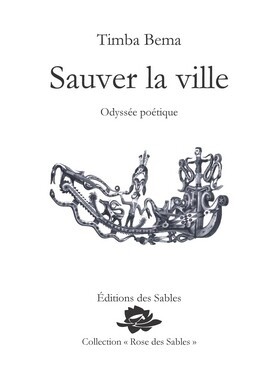
In your poetic odyssey Sauver la ville (Save the City), the narrator's experience seems to echo your own homecoming experience. Can you tell us more?
First, I want to point out that there is no single narrator in Save the City. In fact, there are two: the one who returns to the country, and another who cannot be identified. The first is transformed throughout the odyssey. Which is like life: we don't come out of it quite as we entered it. I must admit similarities between him and me, in the way we lived the experience of the return. Before going into more detail, I would like to point out that in Cameroon, I already had an attraction for travel, fueled as I explained to you earlier by the view of Mount Cameroon. I visited some regions of my country. But it was when I moved to France that I was able to truly satisfy this passion. I therefore postponed the return in order to discover new countries. I traveled in Europe, Asia and America. After ten years, I suddenly felt the visceral lack of my country. So I decided to go back. I must admit that the dominant impression after all these years of separation was the dilapidation of known places. They were literally in ruins, as if they had been abandoned. I visited my primary school, my high school: their dilapidated state contrasted with the sweet and warm memory I had kept of them. Even the badamiers that grew by the side of the road no longer exhaled their haunting odor. It must be said that the hot and humid climate of Douala is a real challenge for architects. Blockwork, which is the solution most commonly used in construction, does not tolerate this climate well. For the buildings to keep a semblance of freshness, they must be maintained after each wintering, which represents a cost that neither households nor administrations can bear. Of course, new buildings had been constructed. But the city gave this impression of eternal renewal. Nothing was guaranteed. One could make enormous sacrifices to raise a building, without having the means to maintain it in good condition for the following generations. I had the impression of capturing the very essence of this city which every day started again the work begun the day before: trying to be, trying to be part of the duration. This observation is all the more striking as the inhabitants of Douala live on resourcefulness. The famous comedian Jean Miché Kankan defined it as follows: "What I see, I do. What I don't see, I don't do." In this regard, we cannot do better. That is to say, they cannot project themselves into the immediate future. By going to bed every night, they are not guaranteed to eat the next day. Resourcefulness creates a habitus that transcends social class. Because most rich people are born poor. We can therefore say that it is a characteristic feature of the city.
Moreover, the only monument that seemed intact in the city was the statue of Leclerc in Bonanjo. How was this possible? I learned that the funds for its upkeep came from France. By contrast, the nearby Palace of the Bell Kings had been turned into a bar-restaurant, and one wing had become a contemporary art gallery. How could Leclerc's statue be in better condition than the palace of the Bell Kings in Bonanjo, their historic stronghold before their ebb in Bali following their expropriation by the Germans? I understood then that commodification had extended its reign over everything to the point of desacralizing everything. Everything could be sold, since nothing had to be kept. Everything could fall apart, since nothing was meant to last and be passed down from generation to generation. I almost felt compelled to write about what my city had become. Like one of the narrators, I felt compelled to save her. This, I believe, is what he and I have in common. The rest of his experience is his own and I cannot answer for it. After all, the characters are as free, if not freer than us. They escape even the most tyrannical author.
Douala is your city of birth. You also grew up there. Is your relationship to it marked by nostalgia or even disillusionment?
Indeed, I was born and raised in Douala. My sensitivity, my relationship to the world have therefore been shaped by this city which is also that of my ancestors. My relationship with the city also affects the link it has with the predecessors and with those who will come in 30 or 300 years. The city is growing year by year. It had 153,000 inhabitants in 1960 and 3.9 million in 2022. In 60 years, the population of Douala has multiplied by 25. According to projections, 1 out of 2 Cameroonians will live in urban areas by 2050 with a doubling ( currently 25 million) of the national population. Douala will continue to grow in the coming years. Mastering one's future presupposes a number of challenges to be met. The first is to define what a Doulien is, a term that I propose to designate an inhabitant of Douala or any person who has ties, anchorages with this city. Because it is true that millions of people from different countries have founded homes, economic activities, etc. The future must remain open. However, it is imperative that the city continues to be irrigated by its past. In fact, the future must be written with the ink of the past. As you can see, my relationship with the city is not based on nostalgia or disillusionment. It is a space that is certainly marked as I said earlier by resourcefulness. The quality of life there is mediocre, as reported by the world index of the quality of life published every year by the English magazine The Economist. But, the role of the poet that I am is to set the imagination in motion so that the dream enters into the order of the possible. The ancient Duala had a conception of power as being the ultimate goal of life, that is to say its state of full realization. To achieve this, it was necessary to control the spiritual forces that favor life (we can speak here of Science) and to control material goods (we can speak here of Economy) without which it is impossible. In short, to be powerful was to hold the Science that allowed sufficient production of wealth for the community. When the Douliens realize that the prosperity of their city is already written in its genes, then I will have succeeded in my mission. After all, the city ends up being saved even if it's only for one day. Let us say to conclude that nostalgia, disillusionment constitute the starting point of the odyssey, but in case their point of arrival.
The portrait you draw of Douala could very well apply to many African cities. How do you perceive the African city?
Here too, we must start by looking into history. If we consider the city as a grouping in one place of a large number of humans and resources, then the city has been an African reality for more than 5000 years. The cities of Egypt and Nubia have remained etched in human memory. We can also mention the Phoenician cities, such as Carthage, on the Mediterranean shore; Aksum in the Horn of Africa; Aoudaghost and Azougui in Mauritania; the medieval West African cities of Djenné-Djeno, Gao, Koumbi Saleh, Ifè, Old Oyo in Yoruba country; Mbanza Kongo in Central Africa; Bigo and Ntusi near the Great Lakes; Kilwa, Shanga, Songo Mnara on the Swahili coast... The list is not exhaustive. The urban phenomenon precedes European colonization. The engineering of future cities could be inspired by those of the past.
The common point between several current African cities is that they were born under European colonization. They were designed according to a Western logic, as is the case of Douala by the Germans. Their urban planning therefore needs to be rethought, like the use of materials to build it. One can for example wonder if the concrete block is a suitable material for a hot and humid environment? We can add as another characteristic of the colonial city racial segregation, in the sense that the inhabitants were divided according to skin color and tribe. Origin continues to be the criterion that assigns individuals their place in the city. It is crucial to go beyond this way of occupying space. With galloping commodification, the city exposes the body to all dangers, to all arbitrariness. She is still traumatized by her contact with one of the most savage forms of capitalism based on extraction, looting and the destruction of life. It is crucial to restore the sacred in the cities. That is to say, to preserve nature, such as the ancient sacred groves, to protect the most vulnerable such as children, the elderly, to also protect the lands which were collective and not individual. Because it is true that one of the challenges of the future city will be the control of the land. Moreover, we can observe that many conflicts qualified as tribal have land as a common denominator. This question must be mastered so that African cities become spaces of achievement and not of vile exploitation, so that they are part of the long term and finally come out of what I called earlier resourcefulness, that is to to say the endless beginning.
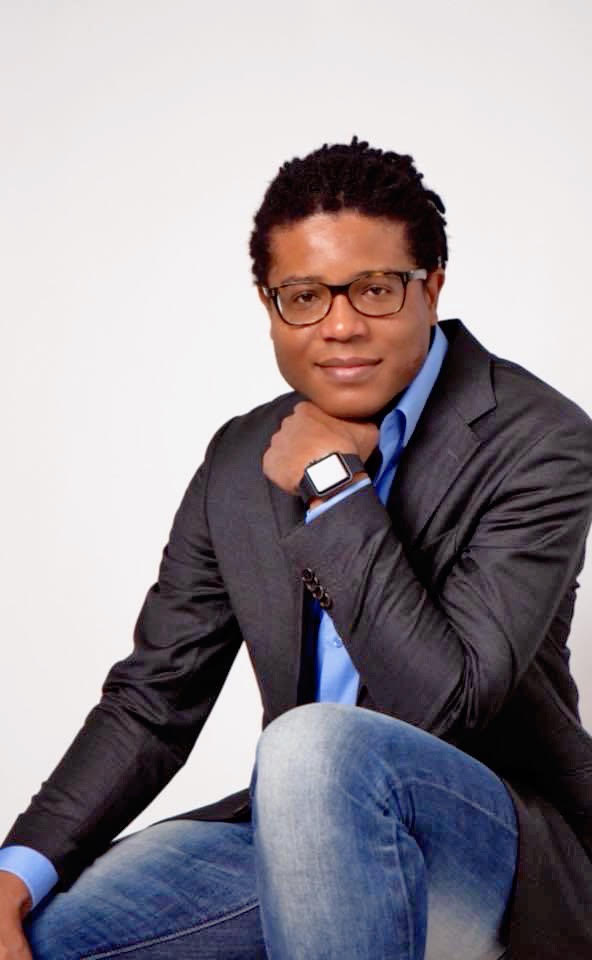
Can we know what you are working on at the moment?
I have just completed two important literary projects which I do not wish to dwell on for the moment. I relax now. I take notes, I reflect. Above all, I read myself. It is often by rereading myself that I start new writing projects or that I resume and extend those that I had barely started. My methodology is therefore note taking, compilation. Reading newspapers, which are easily found online, is a wealth of information on developments in society. As well as social networks, which allow you to see people in action. For a writer, it is a prodigious source of inspiration, because one penetrates the flesh of life with all that that entails of splendor and misery. This raw material necessarily needs to be thought out, put into perspective, fictionalised.
You said: "I am convinced that the future of African literature is in Africa, its environment, I would say, natural. To do this, we must be able to create literary institutions such as publishing houses, readership, libraries, academies, prestigious prizes, etc. "Are you already working in this direction or do you have projects in this direction?
Yes. First, there is the dimension of advocacy, which is not negligible. For example, I observed that the African Union launched a Grand Prize for Literature in 2021. I hope that this initiative is part of the time. However, we must not forget the other genres such as poetry, short stories, theater or comics. That said, I invested myself in this mission by supporting local libraries through book donations. The library remains an excellent means of developing readership. I invite African publishers to adopt an efficient approach vis-à-vis these institutions. I understand their imperative to sell their publications. But it is inconceivable that it is always European publishers who donate books. For a few years, I also hosted a literary magazine that gave pride of place to the next generation of writers. We have enabled authors to publish for the first time or gain confidence in their writing. In any case, I want to believe that some will become literary beacons. I have other projects such as an online magazine and a poetic anthology in African languages. They require funding that is not easy to find. I therefore appeal to your readers.
What message do you have for Cameroonians on the one hand and for Africans on the other?
As a matter of fact, I exchange almost every day with Cameroonians and Africans through my platforms on social networks. They know what I wish for them, what I wish for us. What do I want for Cameroonians and Africans? Allow me to articulate my thinking from my duala culture. However, I am convinced that the same approach can be taken from other cultures. The Duala tradition presents three stages of human evolution: 1) The man who acts according to the advice given to him. We can speak here of the man-child in the sense that his behavior is mimetic. 2) The man who acts according to the recommendations of the fetishes: we can speak here of the adolescent man. Unsure of himself, he seeks validation for his actions in forces outside himself. 3) The man who acts according to his own principles: we can speak here of the adult man, whose action is guided by laws that he has been able to derive from knowledge of the world. He is the accomplished man, the full man. To designate it, we say: a londi. It is full. By what ? By knowledge.
Drawing inspiration from the ancient Duala, we can argue that culture makes it possible to make the accomplished man, that is to say the man who acts according to himself, the free man because he walks on the path of knowledge.
What I wish for Cameroonians, for Africans, is to become accomplished men and women. History has locked us in the gaze of others, so that it is difficult for us to see ourselves with our own eyes, to define ourselves with our own words, to base our existences according to our own laws.
Mr. Timba Bema, do you have anything else to add?
Hum... I'm surprised to see that Cameroonians don't believe in their cultural genius. They do not produce a discourse on the cultural manifestations of their society. It is true that this task is made difficult by two things: on the one hand the racism that locks them into the discourse, the gaze of others; on the other hand, tyrannical regimes that crush individuals and subvert values. The ugly takes the name of beautiful. The false is substituted for the true. The coward is described as courageous. The traitor assumes the attributes of the hero. This confusion does not allow, you will agree, to recognize the genius. However, he is there. Asking only to be perceived. Here you are! There is a sauce in Cameroon called yellow sauce. Its preparation requires a great technicality. We can speak here of culinary refinement. However, Cameroonians do not seem to realize this... Well, I think I have said enough. I am silent now.
By Marcus Boni Teiga
*This article has been translated from French into English by Marcus Boni Teiga



